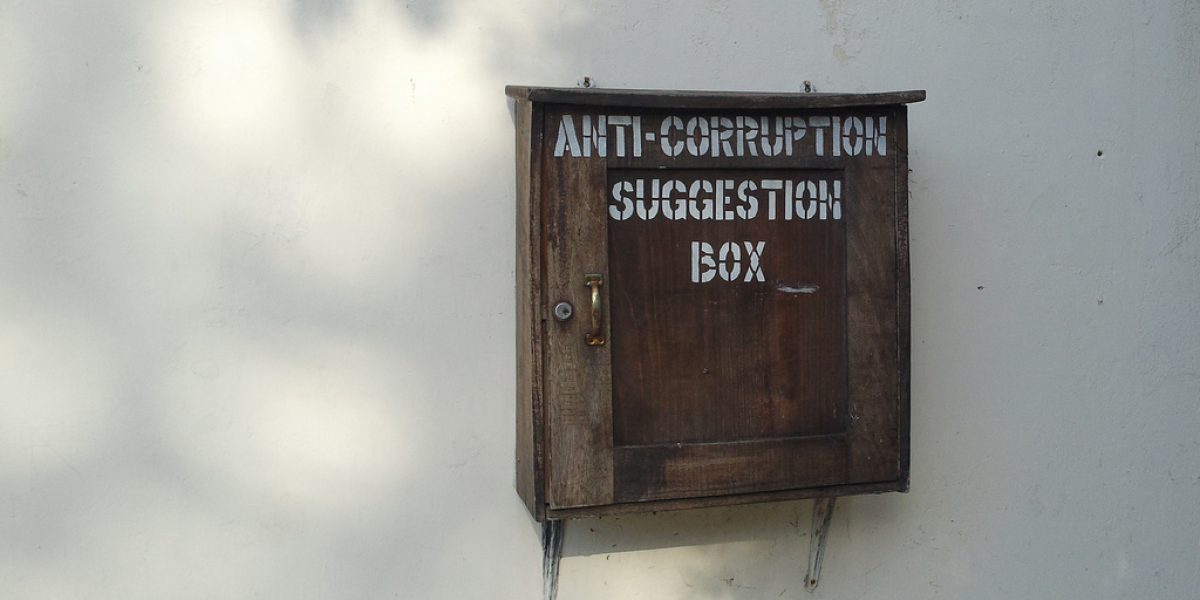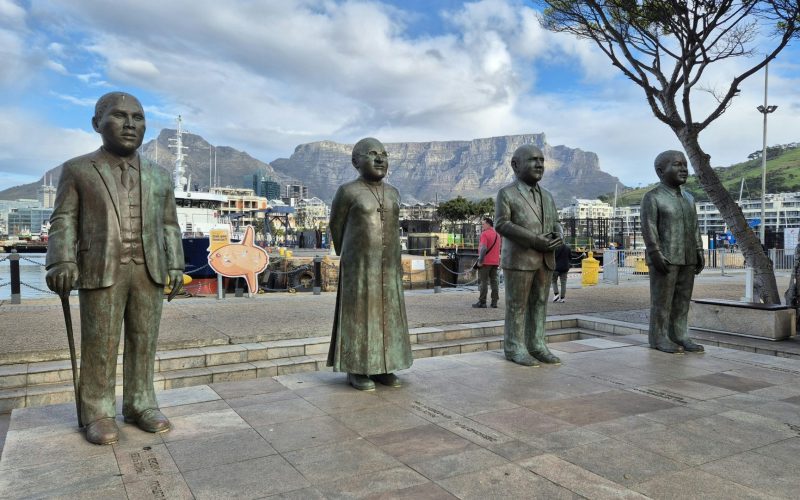Q: Is Africa more corrupt or less corrupt than it was five years ago?
A: Oh, it’s definitely a less corrupt place. There has been a global recognition of how harmful corruption is, how detrimental and damaging it is to development. On the international front, far more effective measures to protect countries from corruption are now in place. Five years ago, it was not a crime in domestic law for a firm from Germany or Japan or the US to offer bribes abroad. In fact, in many instances bribes were tax deductible! But there has been a sea change in the international legal system now. Some 35 countries have acceded to the OECD Convention Against Corruption, which means that those firms now cannot bribe abroad with impunity in places like Africa.
It’s now up to countries in Africa to translate this into action. They must inform their Northern colleagues about the ways firms solicit and offer bribes in their countries and seek remedies in those Northern countries.
Another enormous change has been the shift to post-apartheid South Africa. The apartheid regime was very corrupt; it held secret accounts and developed devious and ingenious anti-sanctions machinations. The new government has paid far greater attention to having the right tools and mechanisms for transparency. The key question now depends on political will: How does the ruling party react to prosecuting corruption closer to home? This is where the media and civil society have a crucial role to play.
Q: Have any African countries moved up in the TI rankings?
A: We’ve seen a lot of backsliding. We expected a major improvement in Nigeria. I believe President Obasanjo is committed to the process, but he faces a powerful congress that has really delayed the legal reform process. Obasanjo himself is not immune from attacks and accusations. But I’m hopeful.
Kenya has shown short-term improvements. We’ve heard the stories of passengers beating up matatu taxi drivers who continued to demand bribes. But politics can overwhelm the best intentions. They have fired 6,000 procurement officers, they’ve fired half the judges, but the downside is that activity grinds to a halt. Perhaps they would be able to borrow judges from other Commonwealth countries with similar legal systems. But the donors are keen to support President Mwai Kibaki’s efforts, including the British, Germans, Scandinavians and the World Bank.
Q: Lesotho successfully brought charges against Western companies for bribery. What’s the significance of this development?
A: An unfortunate consequence for Lesotho is that in exposing corruption, it is perceived as a more corrupt country than it might have been had it just kept quiet. I have great admiration for their attorney general and his legal team. They defended their case against powerful international lawyers who used all sorts of legalistic arguments, but ultimately had their appeal rejected. The fines imposed on the guilty companies were small, especially considering the benefits gleaned from the corrupt activities.
Far more significant, however, is the threat to the reputation of these companies, and indeed the threat of being blacklisted by the UN and other agencies for future contracts. The companies have complained that these punishments were too harsh and that these sanctions should be moderated. German companies, for example, claim that at the time it was not illegal to bribe and was even tax deductible. But this is hypocritical. At first governments said they would not punish their companies because African countries were the ones demanding the bribes and why should they superimpose their standards, laws and ethics on other countries? Now they switch to saying these actions were not illegal in our country at the time.
Q: Is Lesotho an isolated example?
A: I believe that such prosecutions could happen in Nigeria, and in Kenya, too. In future, under the OECD Convention, states will simply have to inform the home country and then the prosecution and/or punishment will occur in the North. There’s a scandal in Norway at present over Statoil bribing in Iran. The chairman and CEO were forced to resign. The same thing happened in a Japanese company bribing in Mongolia.
Q: What is your assessment of the new international revenue mechanisms applied to new Chad-Cameroon pipeline, which were meant to reduce corruption and divert oil profits to social initiatives?
A: The danger in Chad is that the pipeline revenues are completely out of proportion with the national economic environment – they represent far more money than that country has ever seen. Thus there has been the experiment to create a special fund that is controlled by credible players for the good of the people. I think the spirit of the Chad Revenue Sharing Formula is excellent, but the temptation for corruption is enormous. Sadly, the first oil payments to the Chadian government were unilaterally used by the president to buy arms. He claimed this first amount was not covered by the formula. They plan to publish the audits in the public domain, but the country lacks strong civil society organisations. There are powerful international investor and funder interests involved, too.
Q: How do Africa’s ordinary citizens react to their corrupt governments?
A: About 10 countries in Africa are facing elections in 2004 and I believe that corruption is the major issue in many cases. That is clear from our surveys, despite claims that poverty and unemployment top the political and electoral agendas. In Europe, 1 in 100 people have experienced corruption. In Africa, 48 out of 100 people have had actual experience of corruption.
Q: There are signs in Kenya that fighting corruption is more easily said than done. What’s next there?
A: I believe that Kibaki is doing the right things in the right way. We don’t try to second guess or give recipes to leaders. But he has been welcoming to civil society, open and transparent. He should continue implementing a national integrity system, as he has done. The more momentum is gained, the more donors and international agencies will be confident that resources poured into the country will be correctly used.
For me, it was an amazing personal triumph returning to Kenya in July 2003, with World Bank President James Wolfensohn. Twelve years before, I had left Nairobi as a humiliated, defeated person. I was working in the World Bank at the time, and the endemic corruption in the society made me so despondent. Even my best friends and colleagues in Kenya were steeped in it. I was deeply offended — especially when I brought my concerns to the World Bank about corruption and was told that it’s none of their business and they were not allowed to look at corruption. This was a major influence on my decision to form Transparency International. So it was one of the most personally gratifying things of the last decade to return to Kenya — with the president of the World Bank in his private plane — to meet Kibaki and see the changes in that society.
Q: On a practical level, what is the role of African parliaments in fighting corruption?
A: Parliaments should be the allies of the people in fighting corruption. They play a crucial role in building the integrity system, and through probing commissions and committees can keep the executive honest. South Africa’s constitution I believe has the most complete catalogue of transparency guidelines enshrined anywhere in the world. Combined with a speaker of strong integrity like Frene Ginwala, this is very powerful.
Q: What can ordinary citizens do?
A: President Obasanjo made a telling comment to me. He had asked young Nigerian children about their ideal career aspirations. He did not get the answer that children wanted to be teachers, doctors, lawyers or businessmen. They said they wanted to be civil servants, so that they could drive a Mercedes Benz.
Sometimes corruption is so endemic that people don’t care; they shrug and laugh about major scandals. But in Kenya we saw a sense of outrage. Remember the stories of bribe-seeking policemen being beaten up by the people? There should be zero tolerance for corruption.
Q: What about the argument that civil servants are paid so little they must resort to bribery to survive?
A: The most corrupt are often the richest, not the poorest, citizens. We have to have hard civil service reforms. If we cannot afford these bloated bureaucracies, we should not have them. Pay those we do need decent wages. If we tolerate self-financing schemes, there is no end. If a teacher must extort money from students to feed his own family, if a nurse or policeman demand bribes, then these are lousy public servants that nobody needs. It is totally wrong to argue that poverty justifies corruption.
Q: You’ve said that corruption in Africa often stems from practices in developed countries. What is TI doing to stop this?
A: One of the tools we’ve developed is the ‘integrity pact’. Within industries, companies say they want to stop bribing but dare not because their competitors continue to do so. So we bring all the companies together to adopt a common standard on non-bribery. For example, if there is a tender in Kenya for the supply of turbines, and all the players agree to the pact, there are heavy penalties for bribery such as the loss of bid security, liquidated damages or even blacklisting. The World Bank lists over 100 companies on their website who have been involved in bribery.
Another tack is to ensure that civil society has access to the strategic documents at various stages – tendering, bid evaluation, contracts. At first the World Bank rejected integrity pacts as anti-competitive, but has come around.
A third element is the ‘publish what you pay’ initiative spearheaded by international NGO Global Witness, which has been at the heart of the blood diamonds exposé. Some African governments like Angola make huge windfalls selling oil, but governments refuse to inform their populations how much they receive. Now some large oil companies – BP and Shell, for instance – have said they will disclose the payments made to governments. Obasanjo has recently pledged publicly to disclose what his government receives in order to compare official figures with what the oil companies say they pay. This is a big step forward, and we hope the US companies will also agree.







